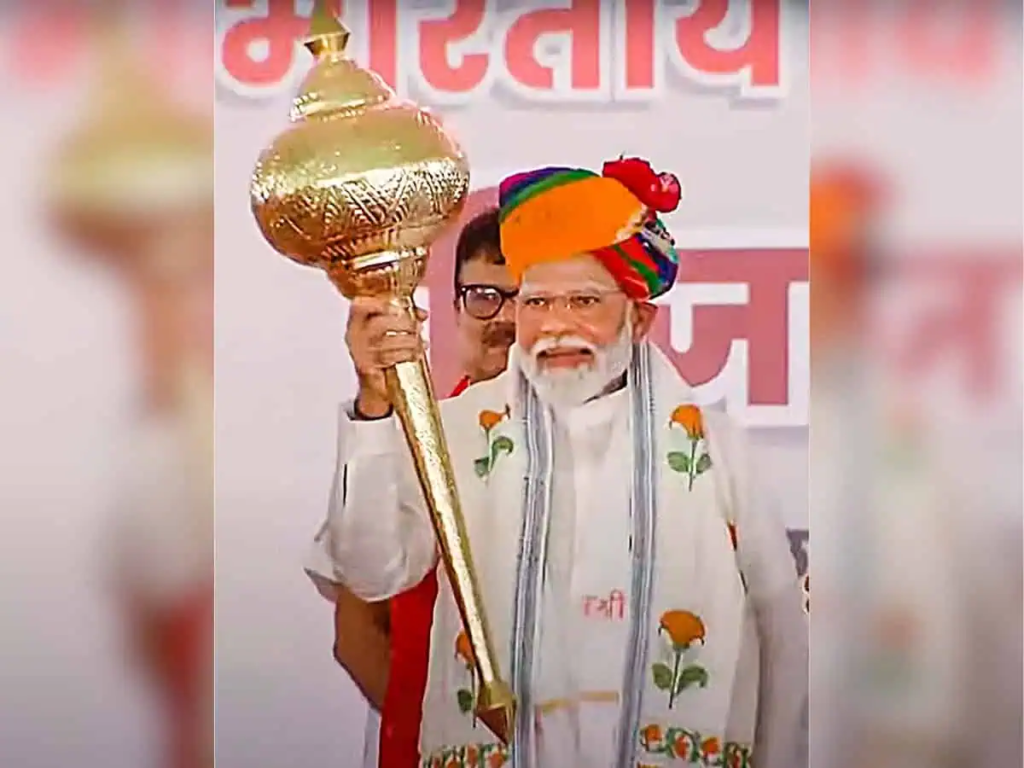The Suppression of Cultural Freedom
The Suppression-In a recent statement, Prime Minister Narendra Modi made startling allegations, claiming that even the simple act of listening to the Hanuman Chalisa has become a crime under the rule of the Congress party. This assertion has sparked widespread debate and controversy across the political spectrum, drawing attention to the delicate balance between religious freedom and state governance in India.
The Suppression-The Hanuman Chalisa, a Hindu devotional hymn dedicated to Lord Hanuman, holds significant cultural and religious importance for millions of Indians. Its recitation is a common practice among devotees seeking blessings, protection, and spiritual solace. However, PM Modi’s remarks suggest a broader concern regarding the perceived infringement upon religious liberties under certain political regimes.
The Suppression-Critics of the Prime Minister’s statement argue that it represents a politicization of religious sentiment for electoral gain, exploiting the reverence for religious symbols to consolidate political support. They contend that such allegations lack substantive evidence and serve to further polarize an already divided electorate.
The Suppression-Conversely, supporters of PM Modi assert that his comments reflect genuine apprehensions about the erosion of cultural values and traditions under the governance of opposition parties. They point to instances where religious practices have been curtailed or marginalized in regions where non-BJP governments hold power, citing these as evidence of systemic discrimination against Hindu beliefs.
The Suppression-To understand the underlying dynamics at play, it is essential to examine the broader context of religious pluralism and state secularism in India. The Indian Constitution enshrines the principle of secularism, mandating a separation between religion and state and guaranteeing individuals the freedom to profess, practice, and propagate religion. However, the interpretation and implementation of secularism have varied over time, often intersecting with political agendas and social dynamics.The SuppressionTo understand the underlying dynamics at play, it is essential to examine the broader context of religious pluralism and state secularism in India. The Indian Constitution enshrines the principle of secularism, mandating a separation between religion and state and guaranteeing individuals the freedom to profess, practice, and propagate religion. However, the interpretation and implementation of secularism have varied over time, often intersecting with political agendas and social dynamics.
The Suppression-The rise of Hindutva ideology, characterized by an emphasis on Hindu nationalism and cultural revivalism, has reshaped the discourse surrounding religion and politics in India. Proponents of Hindutva advocate for the primacy of Hindu culture and traditions within the public sphere, challenging the perceived dominance of secular principles and minority appeasement.

The Suppression-Against this backdrop, accusations of religious discrimination and intolerance have become increasingly prevalent, with each political faction accusing the other of undermining religious freedoms. The politicization of religious identity has fueled communal tensions and electoral rhetoric, further complicating efforts to foster harmony and inclusivity in Indian society.
The Suppression-The controversy surrounding the Hanuman Chalisa reflects deeper anxieties about the preservation of cultural heritage and the safeguarding of religious rights in a pluralistic democracy. While India boasts a rich tapestry of religious diversity, tensions often arise when competing interpretations of secularism clash with deeply held religious convictions.
Moreover, the intersection of religion and politics has implications beyond the realm of governance, influencing social norms, public discourse, and individual freedoms. The perceived marginalization of certain religious communities or practices can exacerbate social divisions and breed resentment, undermining the ethos of unity in diversity that India aspires to uphold.
In response to PM Modi’s allegations, leaders of the Congress party have vehemently denied any intention to curtail religious freedoms or target specific religious groups. They accuse the Prime Minister of engaging in fear-mongering and divisive rhetoric to deflect attention from pressing issues such as economic inequality, social justice, and governance failures.
However, these denials have done little to assuage concerns among supporters of the BJP and affiliated Hindutva organizations, who view secularism as a pretext for minority appeasement and the dilution of Hindu identity. For them, the defense of Hindu culture and traditions is paramount, and any perceived threat to these values warrants vigilant resistance.
In navigating this complex terrain, policymakers must tread carefully to uphold the constitutional principles of secularism while respecting the diverse religious beliefs and practices of the populace. This entails fostering an environment of mutual respect, dialogue, and understanding, where individuals are free to express their faith without fear of discrimination or persecution.
Furthermore, efforts to promote interfaith harmony and communal amity are essential to fostering social cohesion and mitigating the risks of sectarian strife. Civil society organizations, religious leaders, and grassroots initiatives play a crucial role in bridging divides and promoting solidarity across religious lines.
Ultimately, the debate over the Hanuman Chalisa and religious freedom underscores the broader challenges facing India as it seeks to reconcile its pluralistic heritage with the imperatives of modern governance. By embracing inclusivity, tolerance, and pluralism, India can harness the richness of its religious diversity as a source of strength and resilience in an increasingly interconnected world. However, achieving this vision requires a concerted effort to transcend partisan divides and uphold the foundational values of democracy and secularism. Only then can India truly fulfill its potential as a vibrant, pluralistic democracy that respects the rights and dignity of all its citizens, regardless of their religious affiliations.

[…] Karen Bass. The episode, which occurred while the mayor, along with her daughter, son-in-law, and newborn grandson, were present, has resulted in the suspect, Ephraim Matthew Hunter, facing charges of […]